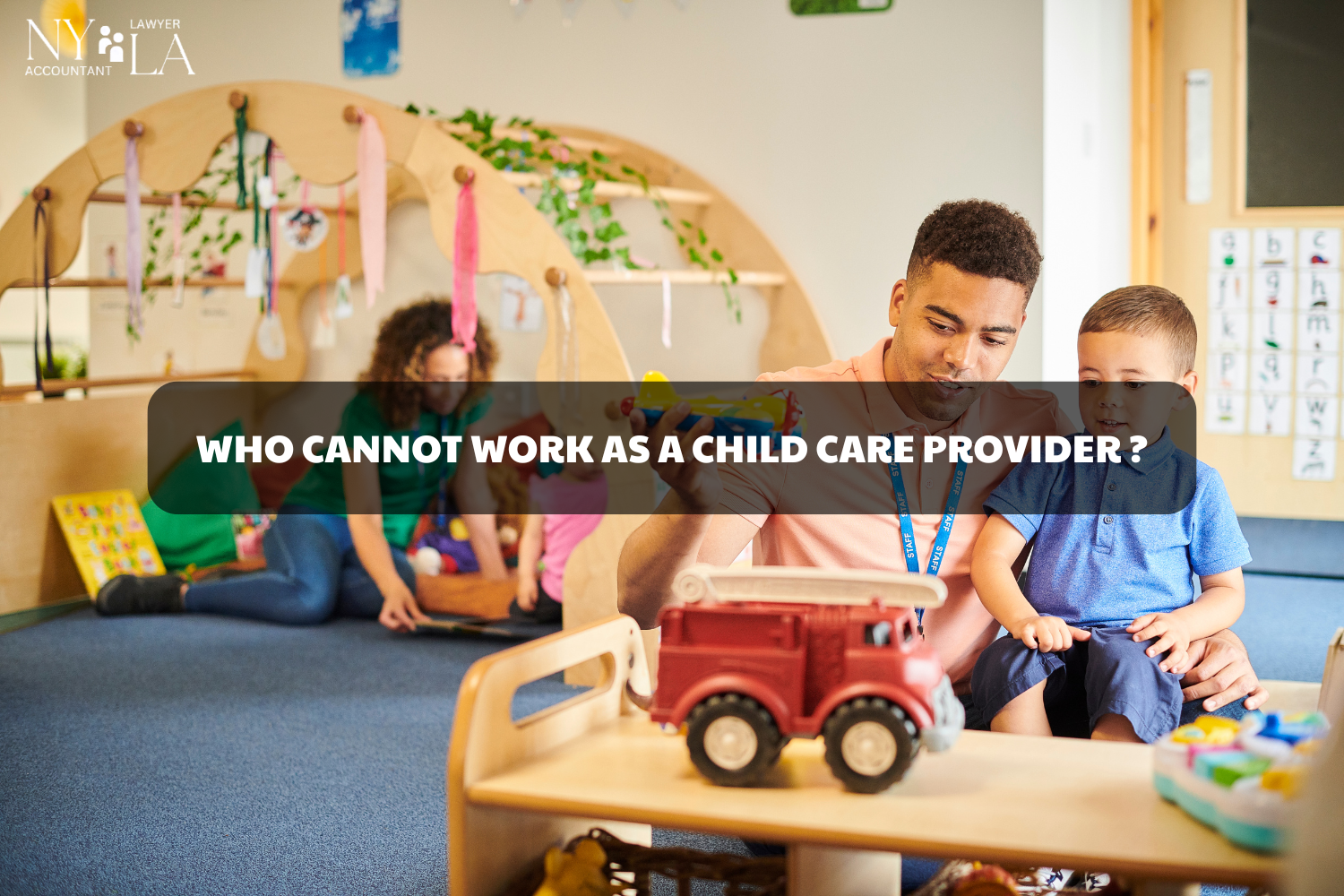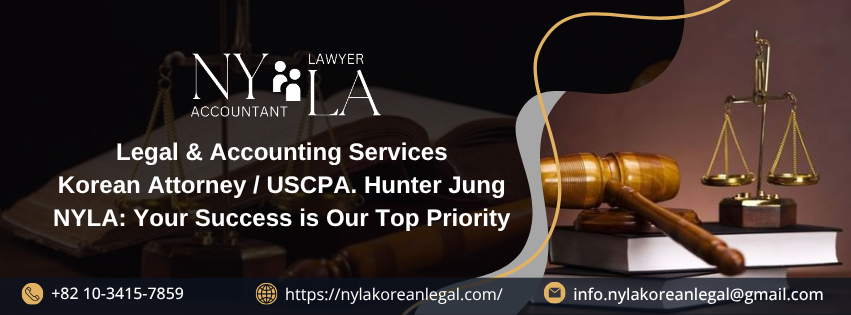Summary
- 1. Understanding Who Cannot Work as a Child Care Provider: Legal Overview
- 2. What Is a Child Care Provider?
- 3. Essential Qualifications for a Child Care Provider
- 4. Grounds for Disqualification from Being a Child Care Provider
- 5. Why These Disqualifications Are Important for Child Care Providers
- 6. How to Verify Eligibility as a Child Care Provider
- 7. Conclusion: Commitment to Safe and Qualified Child Care Providers
- 8. About NYLA – Korean Legal Office
1. Understanding Who Cannot Work as a Child Care Provider: Legal Overview
When considering a career as a child care provider, it is crucial to understand the legal qualifications and disqualifications that govern this important role. The Child Care Support Act in Korea strictly regulates who may serve as a child care provider to ensure the safety and well-being of children aged 12 years or below. This guide provides a detailed overview of the qualifications required and, more importantly, who cannot work as a child care provider under Korean law.
2. What Is a Child Care Provider?
A child care provider is defined as a person who has met specific qualifications and is authorized to provide child care services through registered child care institutions. The role involves not only supervising and caring for children but also ensuring their safety and healthy development. Understanding the legal framework for becoming a child care provider is essential for anyone interested in this profession.

3. Essential Qualifications for a Child Care Provider
To become a qualified child care provider, an individual must complete education courses at an authorized educational agency or obtain qualifications as prescribed by Presidential Decree. The curriculum includes comprehensive training on the following areas:
-
Human rights of children and prevention of child abuse
-
Safety management and accident prevention for children
-
Prevention of sexual harassment
-
Personal development and improvement of the child care provider’s personality
-
Understanding and raising awareness about children with disabilities
-
Additional matters outlined by the Ministry of Gender Equality and Family
Additionally, prospective child care providers must pass an aptitude and personality test conducted by the Minister of Gender Equality and Family. These rigorous educational and testing standards ensure that only well-prepared individuals can take on this vital responsibility.
4. Grounds for Disqualification from Being a Child Care Provider
Despite meeting educational qualifications, not everyone is eligible to work as a child care provider. The law explicitly prohibits certain individuals from holding this position to protect children from potential harm. The grounds for disqualification include:
4.1 Legal and Mental Capacity Restrictions
-
Minors or individuals declared incompetent or quasi-incompetent under guardianship laws are disqualified.
-
Persons diagnosed with mental illness that affects their ability to perform duties safely are also barred.
4.2 Substance Abuse and Bankruptcy
-
Addiction to narcotics, hemp, or psychotropic drugs disqualifies an individual.
-
Bankrupt persons who have not been legally reinstated cannot serve as child care providers.
4.3 Criminal History and Imprisonment
-
Anyone who has served imprisonment without labor or heavier punishment and for whom less than three years have passed since release is ineligible.
-
Persons currently under suspended sentences or court-imposed suspensions of execution of imprisonment are prohibited.
4.4 Crimes Related to Child Welfare and Sexual Offenses
-
Those who have been convicted of prohibited acts under the Child Welfare Act or sexual crimes, especially against children or youth, are barred for up to 10 or 20 years depending on the nature of the sentence and crime.
-
Individuals who committed child abuse crimes with sentences involving imprisonment without labor are disqualified for 20 years after their sentences are served or suspended.
4.5 Qualification Suspensions and Revocations
-
Individuals subject to suspension or revocation of their qualification as a child care provider are prohibited from working in the field for specified periods—suspensions vary, but revocation imposes a minimum two-year disqualification.
5. Why These Disqualifications Are Important for Child Care Providers
The role of a child care provider carries immense responsibility. Children, especially those aged 12 and under, require a safe, nurturing environment. The disqualification criteria outlined ensure that those entrusted with child care do not pose risks related to criminal behavior, mental health issues, or other disqualifying factors.
By legally restricting who can work as a child care provider, the government ensures a higher standard of care and protects children from potential abuse or neglect.
6. How to Verify Eligibility as a Child Care Provider
If you are considering becoming a child care provider, it is essential to verify your eligibility according to the legal requirements:
-
Complete the required education and pass the aptitude and personality test.
-
Obtain a clear criminal record and comply with all disqualification conditions.
-
Ensure your qualifications have not been suspended or revoked.
Many child care institutes perform background checks and require documentation proving these conditions before hiring staff.
7. Conclusion: Commitment to Safe and Qualified Child Care Providers
Becoming a child care provider in Korea is a commitment not only to professional standards but also to the safety and well-being of children. Understanding who cannot work as a child care provider is as important as knowing the qualifications required. These regulations protect children and ensure that only qualified, responsible individuals provide child care services.
If you aspire to join this noble profession, make sure you meet all legal requirements, including the disqualification criteria. This not only protects the children but also strengthens trust in the child care system.
8. About NYLA – Korean Legal Office

■ NYLA – Your Trusted Legal Partner in Korea
At NYLA, we understand that the success of foreign businesses in Korea requires not only a solid business strategy but also reliable legal support. With a team of experienced Korean attorneys and legal professionals, NYLA provides tailored legal services for companies, investors, and individuals operating or planning to establish a presence in Korea.
We support our clients throughout the entire business journey with comprehensive services, including:
- Legal consultation on company establishment, taxation, and immigration;
- Advice on commercial real estate, franchising, and product distribution;
- Support in human resources, marketing, and business strategy.
In addition to legal advisory, NYLA also represents clients in civil litigation cases related to business, labor, marriage, family, and inheritance to ensure their rights and interests are fully protected.
■ Contact NYLA

If you’re a foreign business or individual looking for a reliable legal partner in Korea, NYLA is here to help. We are committed to delivering effective, practical, and personalized legal solutions for every client.
With a proven track record of assisting hundreds of international clients, our team is equipped to help you navigate complex legal challenges—whether it’s commercial disputes, contract issues, or foreign investment guidance.
Don’t let legal matters hold you back. Let NYLA be your trusted guide in the Korean market.
■ Get in touch with NYLA for expert legal support
| Website: https://nylakoreanlegal.com/
FB: https://www.facebook.com/nyla.koreanlegal Tiktok: https://www.tiktok.com/@nylakoreanlegal Youtube: https://www.youtube.com/@NYLA-xd8qx Email: info.NYLAkoreanlegal@gmail.com SĐT: +82 10-3415-7859 |
 |






















































